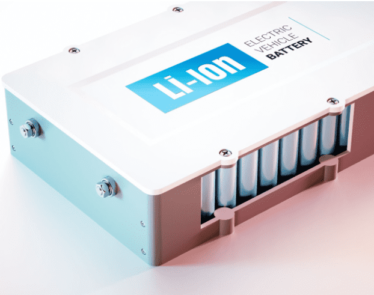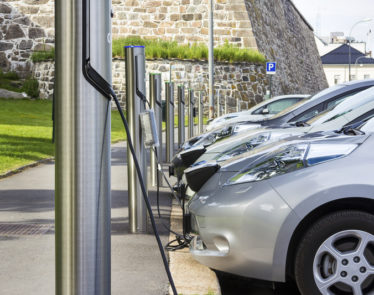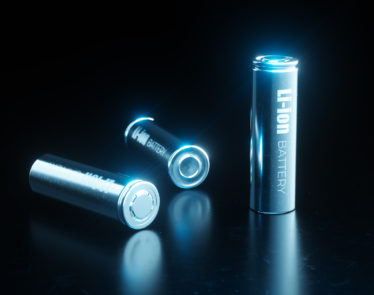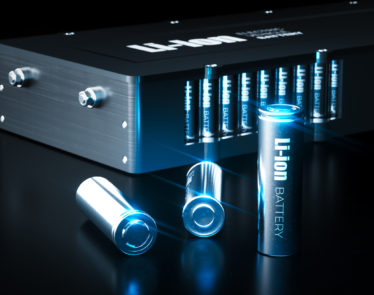
The global economy is starting to make serious movements away from fossil fuels, and the single largest consumer of fossil fuels is transportation. Electric vehicles, or EVs, have become the answer to growing environmental concerns, with President Biden aiming for 50% of the US auto fleet to be electric by 2020. Add to that the newly-passed US infrastructure bill, includes an impressive $85 billion in EV charging infrastructure funding and it’s clear that all eyes (and wallets) are focused on the EV market. As a complex product, EVs rely on several supply chains, creating a lucrative opportunity for battery technology company Nano One Materials Corp. (TSX:NANO) (OTC:NNOMF), EV manufacturers Lightning eMotors Inc. (NYSE:ZEV), Nio Inc. (NYSE:NIO) and Lucid Group Inc (NASDAQ:LCID), and EV infrastructure provider ChargePoint Holdings Inc. (NYSE:CHPT).
The most crucial is proving to be the manufacture of batteries, and companies like Nano One Materials Corp. (TSX:NANO) (OTC:NNOMF), a clean technology company with a patented process for the low-cost, low-carbon-footprint production of high-performance cathode materials used in lithium-ion batteries. The widespread adoption of electric vehicles and clean energy is demanding innovation in the field of battery production and Nano One Materials Corp. is successfully streamlining the battery manufacture process with new technologies to produce more efficient batteries and reduce EV costs.
On August 17, Nano One Materials announced an expansion of their NMC/LNMO cathode evaluation program with a multi-national automotive company to include an industrial scale engineering study. The study is based on Nano One’s patented One-Pot process, clean Metal to Cathode Active Material (M2CAM) technologies and Coated Nanocrystal technologies. The study will enable the two companies to evaluate the economic and environmental advantages of Nano One’s patented process technologies at large industrial scale with sufficient materials to supply a full-scale automotive battery cell assembly plant. and runs in parallel to the ongoing performance testing and validation work on Nano One’s nickel-rich and manganese-rich cobalt-free cathode materials.
“We are pleased to be advancing the relationship with our OEM collaborator and evaluating the economics and environmental advantages of Nano One’s process technology at automotive scales. It is clear from developments over the past year that the pace of change is accelerating, and the target manufacturing scale is many times what it was only a couple of years ago.”
Nano One Materials also announced that it has engaged Hatch Ltd, a leading global engineering firm with deep processing, scale-up, piloting and commercialization experience, to lead engineering study and provide a report to the automotive partner.. Hatch has engineering experience in designing relevant plants and the processing and production of battery grade feedstock materials.
Nano One Materials has also continued to add value to its innovative battery technology through patents. In June, Nano One expanded its patent portfolio with the addition of three patents for a total of 19 issued patents across the globe in jurisdictions like Canada, the US, China, Taiwan, Japan and Korea. The company also has over 35 patent applications currently pending with additional applications being considered.
On top of that, Nano One Materials has also continued to forge strategic partnerships to fuel further innovation and development. Most recently, the company entered into a joint development agreement with global science and chemicals company Johnson Matthey to co-develop next-generation products and processes for Matthey’s eLNO family of nickel-rich advanced cathode materials using Nano One’s patented One-Pot process.
“Johnson Matthey is a global leader in advanced lithium-ion cathode materials, and we are proud to be working with them in the pursuit of high-performance, long life cycles, low-carbon footprint and environmentally sustainable solutions,” said Nano One CEO Dan Blondal. “We share a common vision to develop and commercialize a highly differentiated and value-added cathode materials business and we are delighted to be introducing Johnson Matthey as a trusted partner and collaborating on process innovation for a new generation of lithium-ion battery materials.”
Johnson Matthey joins Nano One’s growing list of strategic partners, which includes Sustainable Development Technology Canada (SDTC), Volkswagen, Saint-Gobain, Pulead, , CBMM and undisclosed multi-billion-dollar Asian cathode materials producer.
The US Gears up for Electric Vehicle Adoption Through Infrastructure Bill
As the two leading global economies, the US and China are both pursuing state-sponsored efforts for electric vehicle manufacture. This healthy and environmentally-progressive competition is underlined by the newly-passed US infrastructure bill. The $1 trillion infrastructure bill is a bipartisan effort to revamp the nation’s infrastructure into the new era, providing much-needed jobs and specifically leading the nationwide installation of electric vehicle charging stations.
Luxury EV manufacturer Lucid Group Inc (NASDAQ:LCID) just entered the public markets through a $4.4 billion merger with Churchill Capital Corp. to accelerate growth and increase4 its manufacturing capacity to meet growing demand. The company already has over 11,000 paid reservations for Lucid Air and is on schedule to deliver its luxury EV in the second half of 2021.
Meanwhile, EV manufacturer Nio Inc (NYSE:NIO) has continued to ramp up its production efforts to help meet growing demand. In July, the company delivered 7,931 vehicles which represents a strong 124.5% year-over-year (YoY) growth. Nio also recently revealed its NIO Power 2025 battery swap station deployment plan, raising its target to over 700 battery swap stations by the end of the year. To date, NIO has built 301 NIO Power Swap stations, 204 Power Charger stations and 382 destination charging stations in China as well as completed more than 2.9 million swaps and 600,000 uses of One-Click-for-Power services.
Leading electric vehicle (EV) charging network operator ChargePoint Holdings (NYSE:CHPT) is taking its EV initiatives one step further after acquiring ViriCiti, a leading provider of electrification solutions for eBus and commercial fleets. The acquisition of ViriCiti will enhance ChargePoint’s fleet solution portfolio by integrating information sources to optimize electric fleet operations, including battery management, OEM-agnostic telematics, charging station monitoring, vehicle maintenance and vehicle operations data.
At the same time, specialty commercial EV provider Lightning eMotors (NYSE:ZEV) entered into a strategic partnership agreement with Berkshire Hathaway company Forest Rivers Inc. to deploy up to 7,500 zero-emission shuttle buses. The deal will see Lightning eMotors to build fully electric powertrains and provide charging products, and services for Forest River over the next four and a half years.
In what is being described as the battery decade, auto manufacturers and investment interests across the globe are pouring capital into battery manufacturing in order to drive innovation and secure a competitive edge. Nano One is forming new partnerships with multinational battery suppliers and positioning itself as an innovator in the growing market.
For more information about Nano One, please click here.
Featured Image: Megapixl © Wuka












